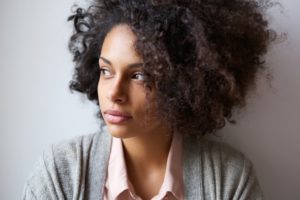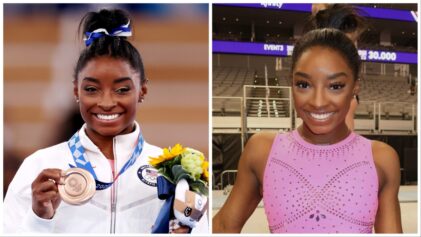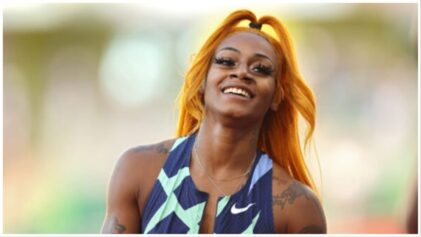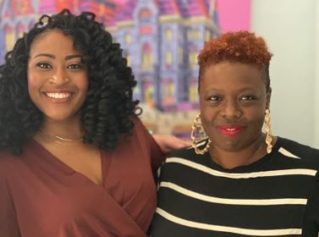As Black women continue to trade in their hot combs and chemical relaxers for natural-based products to work into their naturally textured strands, a newly released study revealed that a large chunk of people — even African-Americans — still have a bias against types and styles of natural hair donned by Black people.
The Good Hair Study, conducted by the New York-based Perception Institute in partnership with popular hair care and beauty brand Shea Moisture, was aimed at examining and better understanding the link between implicit bias and textured hair, according to NPR. The study asked more than 4,000 participants to complete an implicit association test, or “IAT,” to assess their implicit attitudes toward Black women’s hair.
The computerized test, which featured rapidly changing images of Black women with natural and straight hair, along with varying word associations for both, revealed that “a majority of people, regardless of race and gender, hold some bias toward women of color based on their hair.” However, researchers said their results indicated that such bias is learned and can be unlearned over time.
“On average, white women showed explicit bias to Black women’s textured hair. They rated it as less beautiful, less sexy, less professional than smoother hair,” Alexis Johnson McGill, co-founder and executive director of the Perception Institute told Broadly, a women’s interest channel created by VICE. “Black women, on the other hand, had significantly more positive attitudes toward textured hair, particularly Black women in the natural hair community. They rated the pictures more positively.”
McGill noted that when Black female respondents were asked how society perceived various women with natural hair, they automatically assumed that there was a certain level of social stigma against textured tresses.
In the study, millennial naturalistas, or those who wear their hair in its natural state, held more positive attitudes toward naturally textured hair than all other women. The IAT also exposed concerns and social pressures Black women have experienced in regards to their hair.
For instance, the study found that although almost all women worry about their hair, Black women experience high levels of anxiety compared to white women. One in 5 Black women also indicated they felt societal pressure to straighten their hair for work; this was twice the amount of white women who said the same.
Legal battles over the appropriateness of natural hair in the workplace have ensued in recent years, with the courts typically siding with employers — who are usually white. In September, a Black job applicant sued for racial discrimination after the company she applied to offered her the position but then rescinded it after she refused to cut off her locs. A U.S. Court of Appeals ruled, however, that prohibiting employees from wearing locs at work isn’t exactly considered race-based discrimination as cultural hairstyles like locs aren’t considered immutable traits like race or gender by federal law, Atlanta Black Star reported.
Despite these challenges, the natural hair movement has become momentous, with everyday women and celebrities alike hopping catching the wave. In 2015, market research firm Mintel estimated that the Black hair business is worth $774 million and relaxer sales are expected to decrease 45 percent before 2019, further highlighting the popularity of the natural hair movement. With even the U.S. Armed Forces rolling back restrictions on natural hair and hairstyles, it’s hoped that workplaces — and people — will eventually ease up on their bias against naturally textured tresses.
“Our findings provide an important backdrop to recent events related to natural hair, from legal cases on hair professionalism to appropriateness in school,” researchers from the Perception Institute said. “The findings, while preliminary, present a robust set of data and Perception Institute is excited to invest further and grow this body of research.”
Other key findings of the Good Hair Study included:
- One in 3 black women report that their hair is the reason they haven’t exercised, compared to 1 in 10 white women.
- Black women are more likely to report spending more time on their hair than white women.
- Black women are more likely to report having professional styling appointments more often than white women.
- Black women are more likely to report spending more money on products for their hair than white women.



